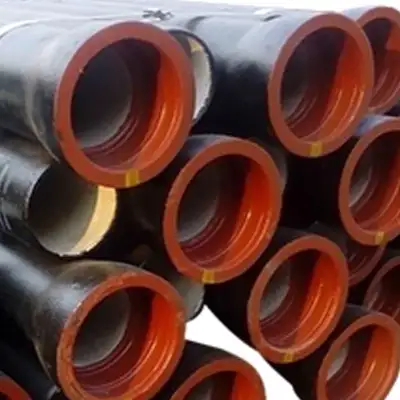I’ve handled countless installations—gas, water, and heating systems—and one question keeps cropping up: can you mix black iron and galvanized pipe? I want to walk you through what the science says, what the codes require, and what you should actually do in real-world applications.
1. Types of Steel Pipe: Black Iron vs. Galvanized
Black iron pipe is uncoated and dark-colored due to scale from manufacturing. It is the go-to for transporting gas and fire‑sprinkler water because it withstands high heat and pressure.
Galvanized steel pipe is coated with zinc, resulting in a silvery-white finish. It resists corrosion better and is commonly used for cold-water supply and outdoor applications . Its zinc coating protects steel from rust, particularly in wet environments.
2. Material Compatibility & Corrosion Considerations
Both black iron and galvanized are steel-based. That means you won’t get galvanic corrosion when you connect them—only general rust over time .
That said, mixing them may affect their corrosion rates. If one metal predominates in a system, the other can corrode slightly faster. In black-dominated systems, galvanized sections may degrade faster; in galvanized systems, black iron can be vulnerable.
However, for typical residential gas or water lines, this is rarely an issue if you follow proper installation practices.
3. Plumbing Codes & Standards
| Application | Standard | Recommendation |
|---|---|---|
| Water (potable) | UPC, IPC | Both ok, but galvanized often preferred for corrosion resistance |
| Gas (natural/LP) | NFPA 54 / Local Codes | Black iron required; galvanized often not allowed |
| Exposed Install | UPC Local Rules | Galvanized or painted black required for aesthetic/durability |
| Outdoor / Underground | Multiple Codes | Galvanized or coated steel required |
-
Water systems: UPC and IPC allow mixing. Most jurisdictions prefer galvanized for improved longevity.
-
Gas lines: National Fire Protection Association (NFPA 54) and many local codes mandate black iron only. Galvanized is often considered unacceptable.
-
Exposed piping: Some inspectors require galvanized or painted black to prevent rust and for consistent appearance .
-
Underground/exterior piping: Typically must be galvanized, coated, or wrapped per municipal code .
4. Best Practices for Mixing
-
Know Your Application – Pressure, contents, and exposure determine suitability.
-
Local Authority Check – Always confirm with your local AHJ.
-
Corrosion Protection – Paint black iron sections and ensure galvanized parts stay coated.
-
Use Proper Fittings – Use threaded transition couplings with sealant or dielectric unions where dissimilar materials meet.
-
Regular Maintenance – Inspect mixed sections periodically; add supports to prevent sag or stress.

5. Case Study: Residential Gas Line Conversion
Background:
In a 1960s home, the exposed outdoor gas line from the meter was galvanized—as required by local code at that time. Indoors, black iron was used.
Challenge:
During a furnace upgrade, the homeowners wanted to replace parts of the indoor black iron with galvanized for corrosion resistance.
Actions:
-
I confirmed local code allowed galvanized only for water—not gas.
-
Removed the indoor galvanized pipe.
-
Replaced it with black iron and painted it with rust-resistant primer.
-
Installed threaded transition couplings at the gas meter to maintain galvanized outdoor exposure.
Outcome:
The system passed inspection. Maintenance scans showed no accelerated corrosion after two years. The homeowner saved money and stayed code compliant.
6. Comparison Table
| Feature | Black Iron | Galvanized Steel |
|---|---|---|
| Use Case | Gas, fire suppression | Water, outdoor plumbing |
| Corrosion Resistance | Low (requires coating) | High (zinc-protected) |
| Cost | Generally lower | Slightly higher in some markets |
| Code Compliance | Required for gas | Often required outdoors, disallowed for gas |
| Mixing Compatibility | Good if done correctly | Good but watch corrosion dynamics |
7. Frequently Asked Questions
1. Can you safely mix black iron and galvanized pipe?
Yes, provided both materials are steel. Corrosion is mostly general—no severe galvanic reaction. However, balance matters: in mostly black systems, galvanized parts may corrode faster, and vice versa.
2. Why do many plumbers avoid mix‑and‑match?
Mixing might lead to uneven corrosion. And it can complicate code compliance. Plus, pipe availability and matching fittings sometimes make pure-material runs simpler .
3. Is galvanized acceptable for natural gas?
Generally no. Most jurisdictions under NFPA 54, UPC, or IPC forbid galvanized in gas lines due to inspection resistance and risk of flaking zinc chips .
4. How do you transition between materials?
Use threaded mechanical couplings or dielectric unions designed for steel-to-steel transitions, and apply proper joint sealants .
5. What maintenance is needed for mixed systems?
Inspect exposed areas annually. Repaint black iron sections as needed and check galvanized coatings for wear. Support pipe every ~12 feet to prevent sagging .

